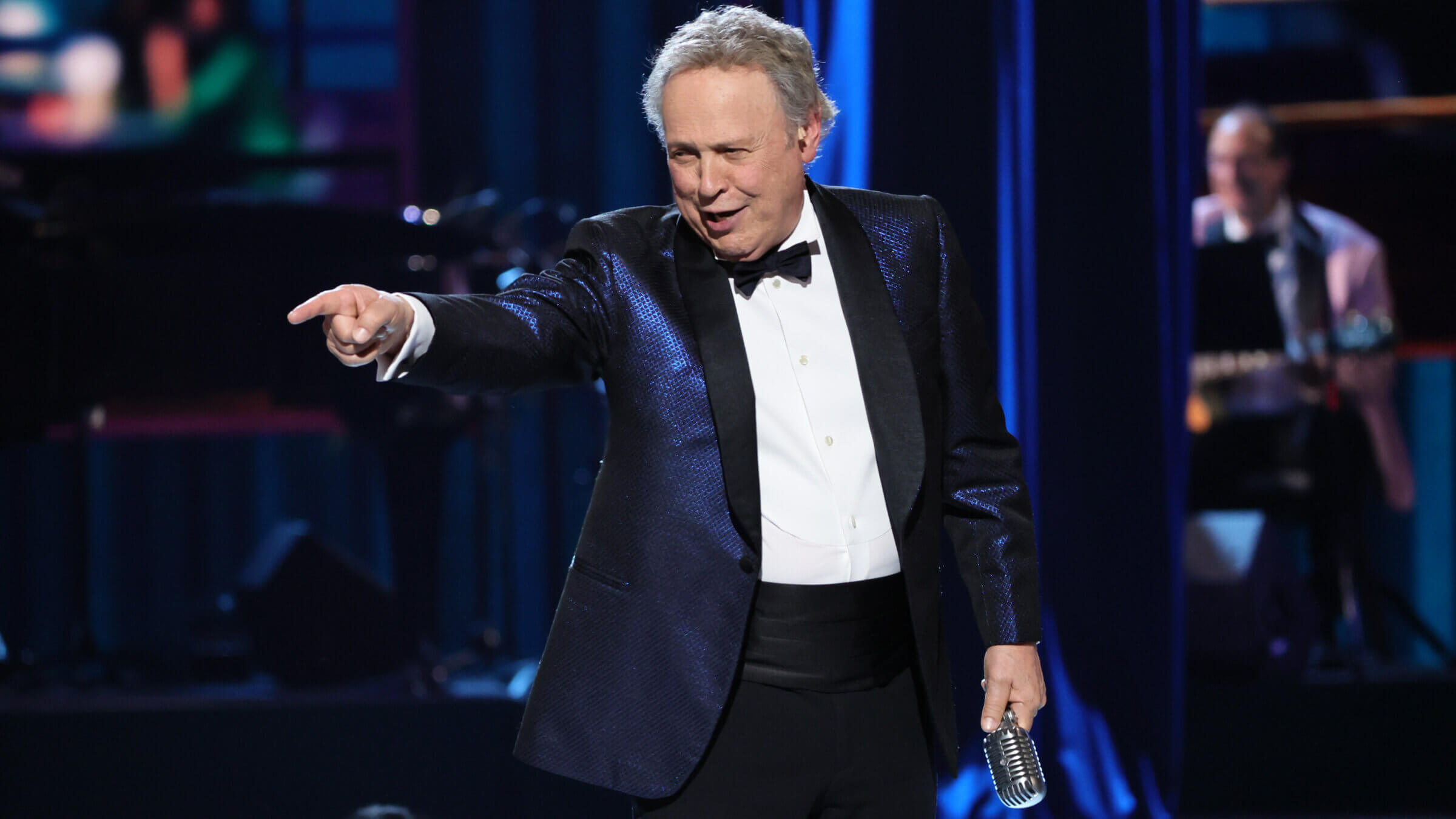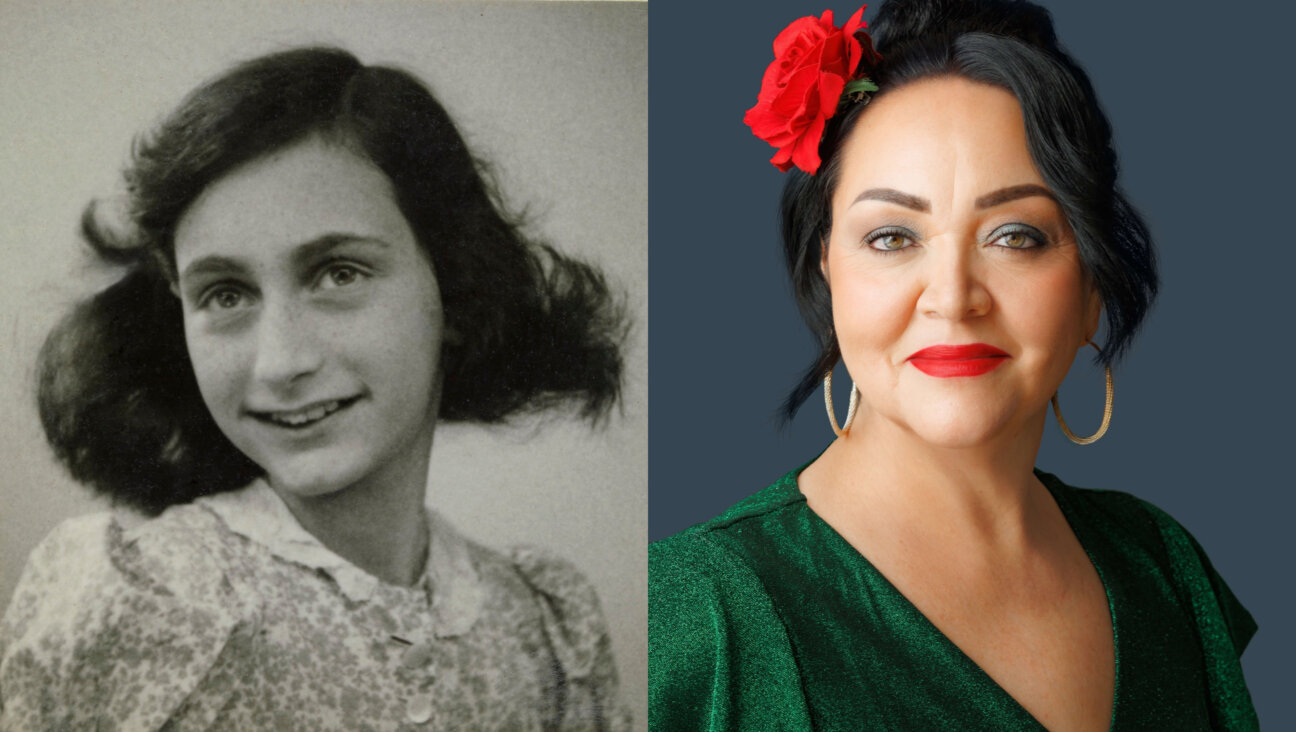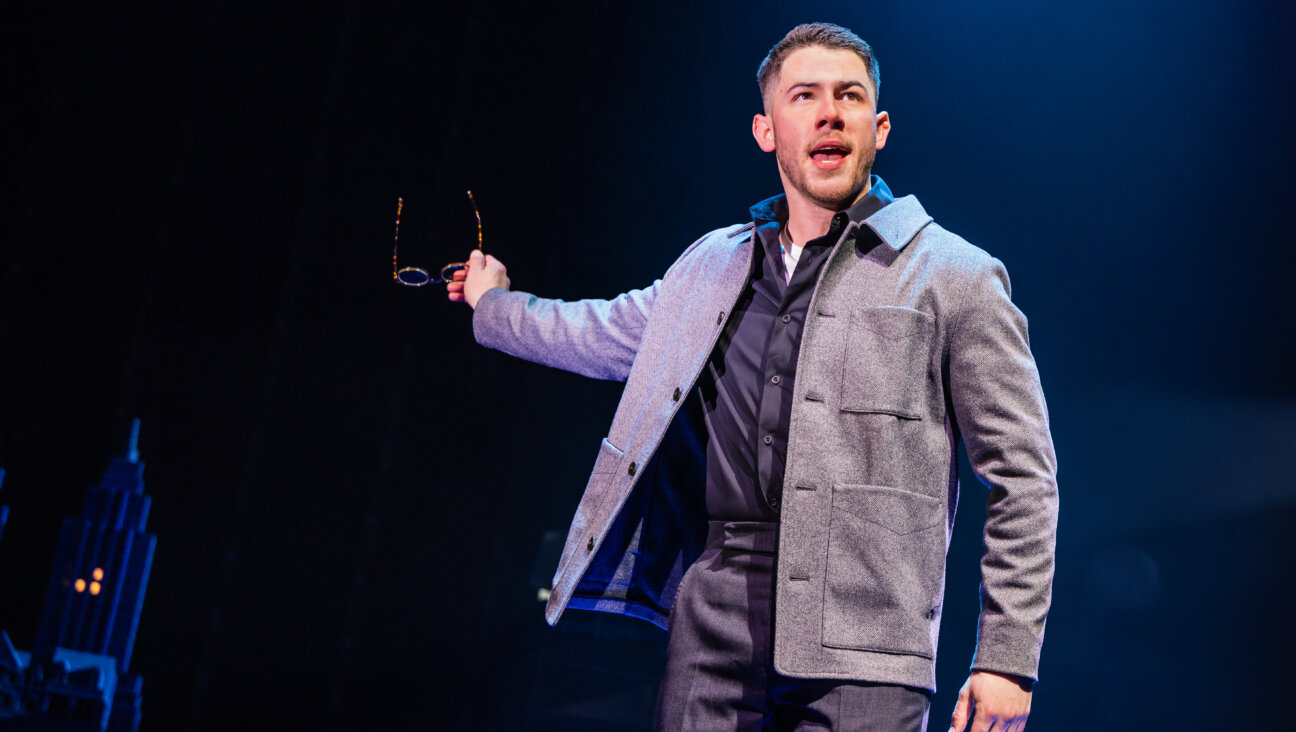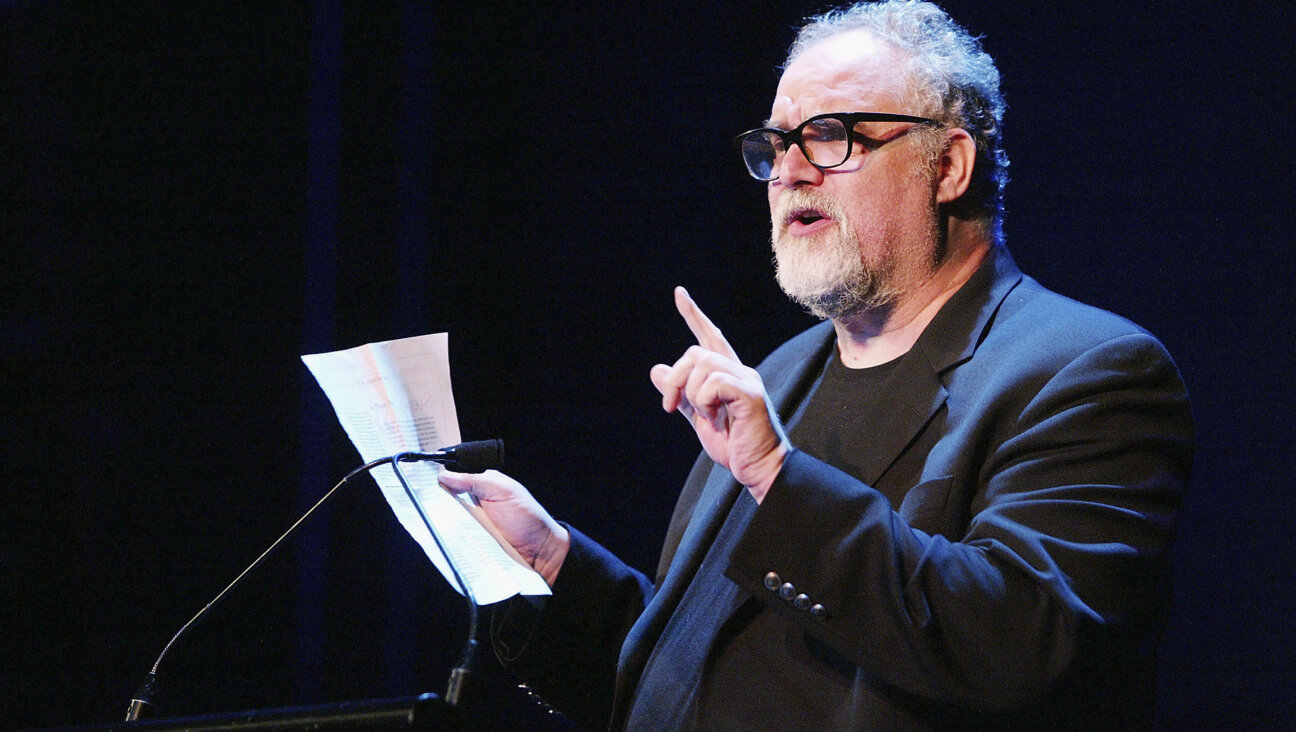Billy Crystal’s fake Yiddish was a Jewish standout at the Tonys — but how should Jews feel about it?
The shtick was familiar and fun, but did it reduce the mameloshn to a punchline?

Billy Crystal led the audience at the 75th Tony Awards in faux-Yiddish call-and-response. Photo by Getty/Theo Wargo/Staff
When Billy Crystal took the stage at the 2022 Tony Awards, I was briefly horrified by his opening line.
“Do you guys like jazz scat-singing?” the 74-year-old actor asked the audience, on a night that saw wins for Jewish fare like “The Lehman Trilogy” (written by non-Jews, but directed by Sam Mendes and starring Adam Godley) and Stephen Sondheim’s “Company.”
I dreaded that Crystal, who often recounts his childhood acquaintance with jazz greats like Louis Armstrong, would repeat one of the least advisable performances of his career. I speak of course of the time he stepped into the character of an elderly New Orleans jazz man as part of a Hurricane Katrina benefit concert. (You can watch some of that regrettable sonic blackface here, thoroughly fileted by radio host Tom Scharpling; Crystal also has a history of actual blackface.)
Imagine my relief when Crystal, as the character Buddy Young, Jr. in the musical version of “Mr. Saturday Night,” said that they would not be doing jazz scat-singing, but Yiddish scat-singing. This seemed far more appropriate, if also uncomfortable for some.
We’re going to stick around the #TonyAwards for more Yiddish scat performed by @MrSatNightBway's @BillyCrystal! pic.twitter.com/LuqEsY9C9i
— CBS (@CBS) June 13, 2022
Crystal’s rapid-fire riff of faux Yiddish words displayed a showman who could still amuse and keep the Borscht Belt tradition going. In the musical, Crystal plays a once-successful stand-up who played the Catskills and had early success with the advent of television – before blowing it. He soon becomes a mainstay of the Friars Club as his legacy is forgotten.
It seems this fate was never on the table for Crystal, despite his Katrina flap and Yiddish-peppered Sammy Davis, Jr. impression, and this performance reveals one of the secrets to his endurance. Here we have a performer presenting a version of his heritage and inviting others in – while wryly knowing not everyone will be able to follow his cadence.
As much as he stumped the tongues of those at Radio City, Crystal angered some Yiddishists on Twitter for parodying the language of his forebears – but then, scat by its nature deals in nonsense vocalizations. It would be ungenerous to say that he was implying Yiddish is a nonsense language rather than a language that, like any other, has unique sounds. At least that’s my opinion as someone who isn’t dedicated to the often difficult secular preservation of the mameloshn beyond kitsch like “Oy Vey, Earl Grey” tea.
The apex of Crystal’s Tony turn was his venture out into the audience, where he held a microphone in front of Samuel L. Jackson, who did his level best to keep up. Lin-Manuel Miranda was not spared Crystal’s attention, with the comedian goading the Tony winner to proclaim that he was “Alexander Rabinowitz,” rather than Hamilton. The only actual Yiddish was the “Oy” and “Vey” from the right and left sides of the house.
But this audience participation is also where it becomes complicated. It’s one thing to have fun with the language you and your audience grew up hearing — and there’s a long comedic tradition there — but when you present it as potentially authentic to a crowd with less exposure to it, there may be a greater responsibility. All the more so given the history of denigrating Yiddish as ugly, inscrutable or, worse, illegitimate.
I’m not saying I think Jackson or Miranda left that night thinking they now know some real Yiddish, but what of the millions of Tony viewers at home? The question mirrors the dilemma faced by Crystal’s character, who bounced between rooms in the Jewish Alps and the American airwaves. (In the context of the actual number in the musical, it appears that Crystal as Buddy is playing a place called “Farber’s,” which of course changes the calculus somewhat.)
The actor who created Buddy Young, Jr. also played Kutsher’s (albeit much later), but was mostly able to exist for a broad television and film audience while being unmistakably Jewish. Perhaps by having that level of exposure, Crystal has watered down his Yiddishkeit too much, inviting the wider world to be in on a joke they don’t really get and missing a comic opportunity to educate the masses. The Yiddish language should be more than a punchline or, as Crystal called it in his memoir and one-man show, “a combination of German and phlegm.”
A discussion about the deleterious effect of humor like this – which continue to prevail in the American mainstream – deserves attention. But, unlike the other cultures Crystal has imitated onstage, at least this one’s his.
Correction, June 13, 2021 12:31 PM: An earlier version of this article stated Crystal “never really played Kutsher’s”; he did, but became known early on for his TV work and performances at Catch A Rising Star.
























